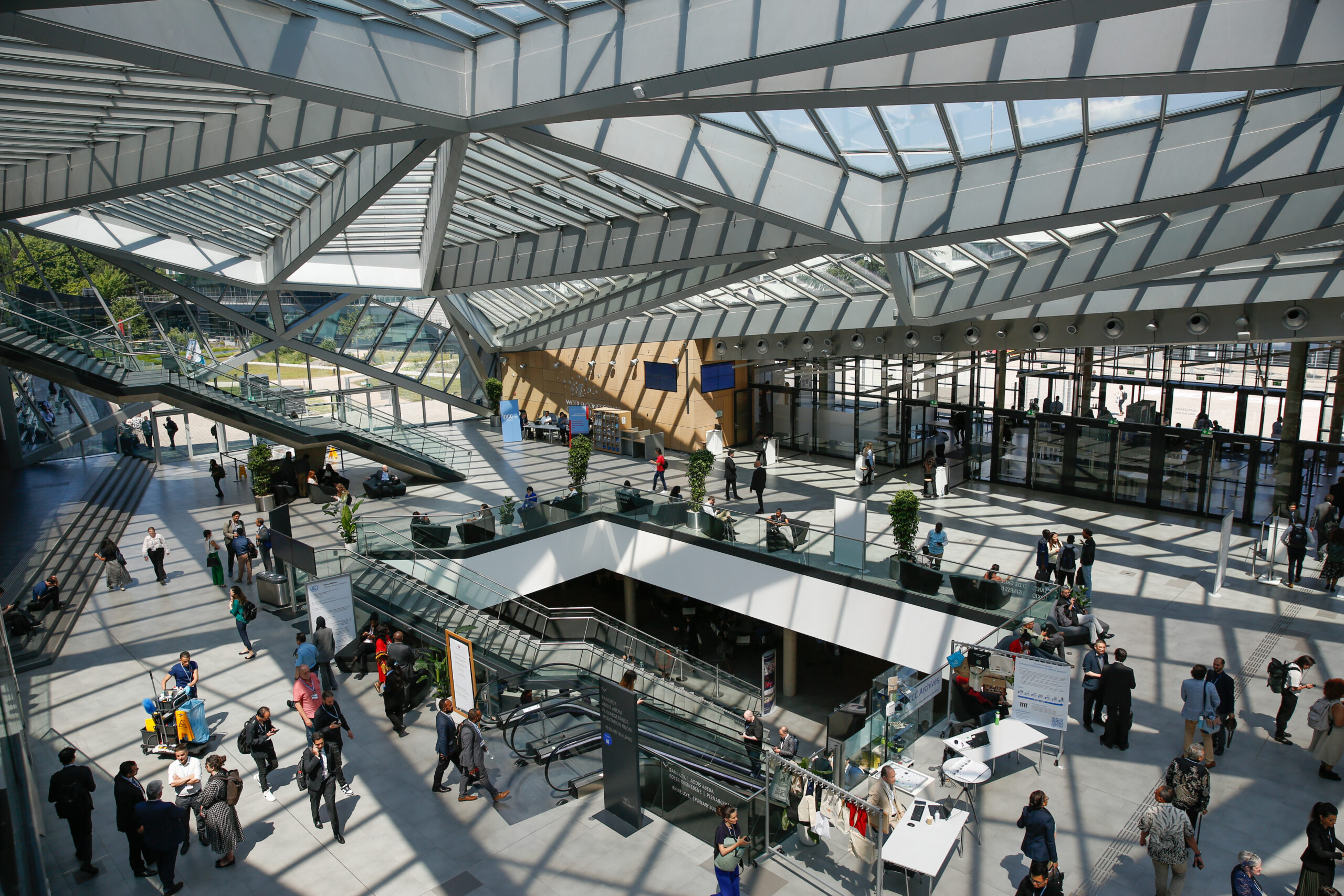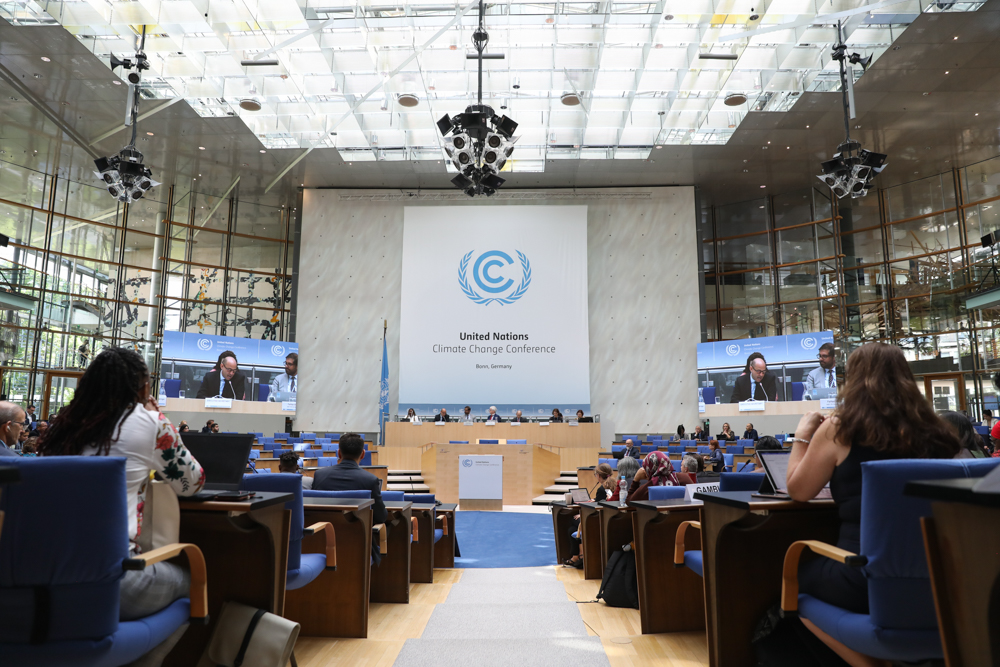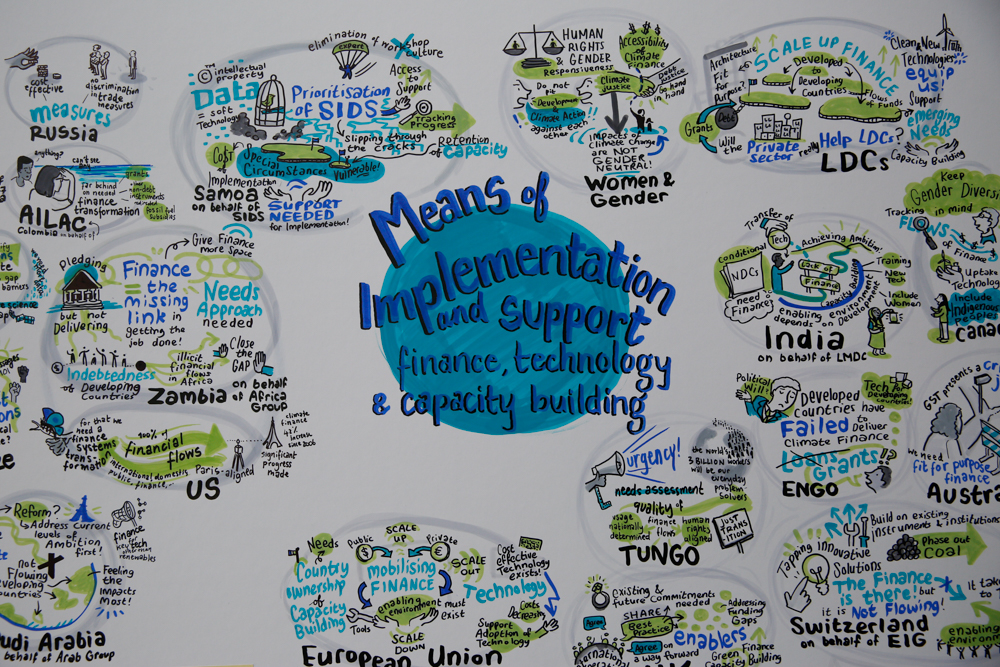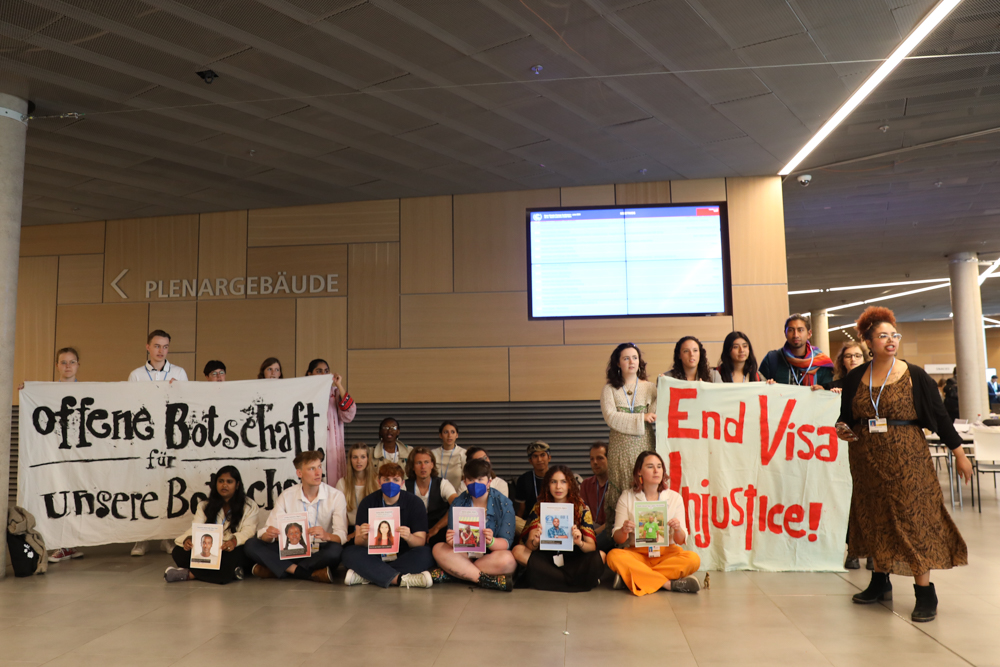Bonn Climate Conference: Reflections by Future Earth Delegates

The goal of the Bonn Climate Change Conference, held from 5-15 June in Germany, was to prepare decisions for adoption at COP28 in Dubai in December. Building on the mandates that emerged from COP27 in Egypt last year, the conference convened the 58th session of the UNFCCC subsidiary bodies. Points of discussion included the global stocktake, the global goal on adaptation, the just transition to sustainable societies, the mitigation work program, loss and damage, and others.
“The technical phase of the global stocktake concluded at the Bonn Conference and the political phase of the stocktake is starting. It is anticipated that this ongoing discussion will yield even more robust outcomes during COP 28, where key decisions will be made,” said Xiaoyu Fang, Co-Executive Director of Future Earth Coasts, and virtual Future Earth delegate to the Bonn Climate Change Conference. “The conference also shed light on the critical need to enhance the loss and damage mechanism. It became evident that providing financial and technical assistance to countries grappling with the severe impacts of climate change is of utmost importance.”
A bumpy road for negotiations
Despite the incoming COP28 Presidency stressing that humanity is reaching “a watershed moment,” progress stalled on the negotiations. Parties did not agree on an agenda for the meeting until the second to last day of the conference. This meant that negotiators worked on the basis of the provisional agenda, despite not knowing if the outcome of their discussions would actually be captured and forwarded to the COP. The two controversial items – the mitigation ambition and implementation work program, and urgently scaling up financial support from developed countries to enable implementation for developing countries – ended up being excluded from the agenda.
Language on the recognition of the IPCC’s latest findings remained weak, with parties failing to reach consensus on stating that the IPCC’s latest report (AR6) was the most robust and comprehensive assessment to date. Parties could also not agree on a host for the Santiago Network on loss and damage, did not advance the development of a framework for guiding the achievement of the Global Goal on Adaptation, and only noted an indicative draft structure of the decision on the Global Stocktake.
“The collective response remains pitiful. We are hurtling towards disaster, eyes wide open,” said UN Secretary-General Antonio Guterres, on the final day of the conference.


Concerns over representation
Representation and making the right voices heard at the right times is crucial to the progress of the international climate negotiations. The Future Earth researchers who were part of the delegation unequivocally reported an overrepresentation of fossil fuel industry representatives at the conference who were sometimes part of national delegations, whereas civil society representatives, especially those from the global South, faced enormous struggles with getting visas. Just one example – a Future Earth delegate could not travel to the conference because the German embassy failed to give him a visa appointment ahead of the conference.
“[There are] reports on lack of civic space for climate activists globally. Climate protesters are even being arrested in Global North countries and are facing restrictions in UNFCCC including in Glasgow, Egypt, Katovice UNFCCC events. People are arrested before COP and have problems during COP. Similar situations in Emirates for COP28 are anticipated,” said Marion Glaser, Future Earth Coasts and IMBeR, Future Earth delegate at the Bonn Climate Change Conference. “Fossil fuel interests are reported to be given great space in UNFCCC. […] with current laws and practices, UAE as a host of COP28 will not give open civic space for UNFCCC issues. Fears for COP28 therefore exist. The necessary call for “polluters to be kicked out” appears to be infeasible for UAE COP. The denial of visas also acts structurally.”

These representation issues are all the more alarming since there is an increasing push for technologies which may potentially have huge repercussions on local and indigenous communities:
“I find it quite alarming that there is a big rush to CDR [Carbon Dioxide Removal] – economically – and lots of funding involved without the proper regulations, safety standards, ethical and precaution framework that include responsibilities. It is also important to urgently put in place a Monitoring, Report and Verification scheme and conduct code to avoid unintended consequences. The IPCC suggested CDR techniques as unavoidable because we are making little progress in respecting the Paris Agreement. However, CDR techniques are not the first solution: carbon dioxide reduction is the real objective as climate interventions and CDR cannot substitute for substantial emission cuts.
It has been pointed out the failure of the CO2 market to the expense of local and indigenous populations by ‘CO2 cowboys’ and ‘carbon credits’ and there is the real risk that CDR techniques are going towards that direction without sound science and rigorous control. Therefore, it is important that more scientists are included in the discussion on CDR as it is necessary to have publicly supported research to ensure transparency and better understand the socio-economic, ethical, justice and environmental aspects before it turns out to be a global market-based resolution with unknown effects on our oceans and climate.”
Luisa Galgani, SOLAS national contact point for Italy, SOLAS Early Career Scientist Committee member, and Future Earth virtual delegate at the Bonn climate change conference.
In view of these challenges, there is a growing discussion about the ability of the international UNFCCC process to deliver the required decisions and actions for climate change mitigation and adaptation. Calls for streamlining and “cleaning up” the process to free up time and energy for substantial discussions and progress in already overpacked meetings are increasing. For now, this leaves COP28 in December in Dubai with the challenging task of bringing about a course correction and actually delivering the “watershed moment” evoked by the COP28 presidency. Future Earth will continue to engage with the UNFCCC process, trying our best to make the voice of scientists heard at the upcoming COP28.
A delegation of 8 community members from across our networks joined the conference:
- Marion Glaser (Future Earth Coasts and IMBeR), on site
- Denis Worlanyo Aheto (Future Earth Coasts), virtual
- Xiaoyu Fang (Future Earth Coast), virtual
- Samiya Selim (IMBeR), virtual
- Saurabh Sonwani (iLEAPs), virtual
- Luisa Galgani (SOLAS), virtual
- Rebecca Fenn (Future Earth Secretariat), virtual
- Daniel Ospina (Future Earth Secretariat), virtual
Photo by IISD/ENB | Kiara Worth
DATE
July 11, 2023AUTHOR
Bridget BlakeRebecca Fenn
SHARE WITH YOUR NETWORK
RELATED POSTS
Future Earth Experts Contribute to “10 Must Knows” as a Guide to Preserving Biodiversity
Future Earth Members Selected as Experts for IPCC Special Report on Cities
Expert Input Welcome for the 2024/2025 Edition of the 10 New Insights in Climate Science